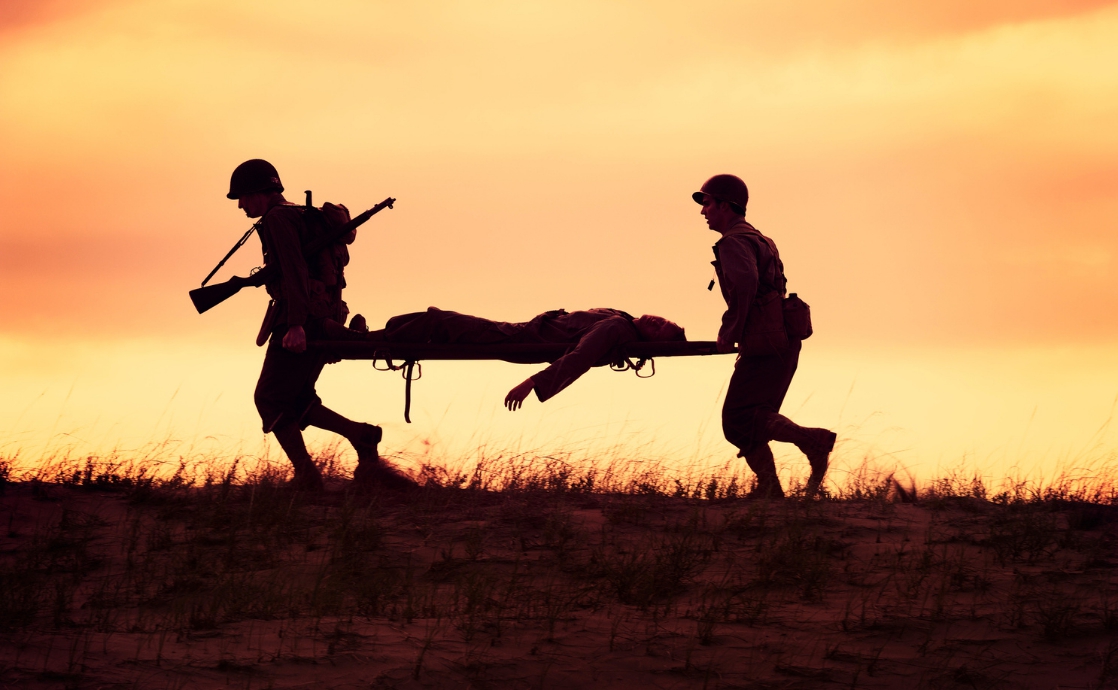The views expressed in our content reflect individual perspectives and do not represent the authoritative views of the Baha'i Faith.
In 1914, just before the opening salvos of World War I, an inquirer asked Abdu’l-Baha: “How can universal peace be realized?” In response, Abdu’l-Baha may have shocked and stunned his listeners.
In his pointed answer, Abdu’l-Baha outlined three unheard-of proposals:
- banks must not lend money to warring nations;
- transportation companies must not move weapons and ammunition anywhere;
- and finally, soldiers must demand from their leaders a clear and cogent rationale for the war they’re about to fight – before they fire the first shot.
RELATED: Afghanistan and Post-War Forgiveness
If any of those three things had occurred in the run-up to “the war to end all wars,” its carnage never would have happened.
Abdu’l-Baha started out by saying: “The ideals of Peace must be nurtured and spread among the inhabitants of the world; they must be instructed in the school of Peace and the evils of war.”
Then he listed, one by one, his reformist proposals:
First: The financiers and bankers must desist from lending money to any government contemplating to wage an unjust war upon an innocent nation.
Historically, this would have been unprecedented. Normally, the world’s largest banks would lend money to governments to finance the costs of war, and prior to World War I, five of those large institutions – Barings, Kleinworts, Morgans, Rothschilds, and Schröders; and the world’s three largest financial entities at the time, the joint-stock banks Lloyds, Midland, and Westminster – all believed they could make money on the coming war by charging profitable interest rates on loans to various governments. They actively encouraged political leaders to involve their countries in warfare. (for more information on the role of banks in the war, see here)
Abdu’l-Baha’s next proposal was equally radical:
Second: The presidents and managers of the railroads and steamship companies must refrain from transporting war ammunition, infernal engines, guns, cannons and powder from one country into another.
At the time, most goods were moved by railroad and by ship, and as a result the large transportation companies also considered war a very profitable undertaking. The main supply lines for troops, weapons, and ammunition all depended on rail transport, and if the railways had refused to move the war materiel, they could have effectively stopped hostilities. (for more information on the role of transportation in war, see here)
But Abdu’l-Baha’s third proposal easily sounded the most revolutionary recommendation – and the one most critical of the masters of war, who he called the “kings and rulers, politicians and warmongers:”
Third: The soldiers must petition, through their representatives, the Ministers of War, the politicians, the Congressmen and the generals to put forth in a clear, intelligible language the reasons and the causes which have brought them to the brink of such a national calamity. The soldiers must demand this as one of the prerogatives.
’Demonstrate to us,’ they must say, ’that this is a just war, and we will then enter into the battlefield otherwise we will not take one step. O ye kings and rulers, politicians and war-mongers; ye who spend your lives in most exquisite palaces of Italian architecture; ye who sleep in airy, well-ventilated apartments; ye who decorate your reception and dining halls with lovely pictures, sculptures, hangings and frescoes; ye who walk in perfect Elysiums, wreathed in orange and myrtle groves, the air redolent with delicious perfumes and vocal with the sweet songs of a thousand birds, the earth like a luxuriant carpet of emerald grass, bright flowers dotting the meadows and trees clothed in verdure; ye who are dressed in costly silk and finely-woven textures; ye who lie down on soft, feathery couches; ye who partake of the most delicious and savoury dishes; ye who enjoy the utmost ease and comfort in your wondrous mansions; ye who attend rare musical concerts whenever you feel a little disconcerted and sad; ye who adorn your large halls with green festoons and cut flowers, fresh garlands and verdant wreaths, illumining them with thousands of electric lights, while the exquisite fragrance of the flowers, the soft, ravishing music, the fairy-like illumination, lends enchantment; ye who are in such environment: Come forth from your hiding-places, enter into the battlefield if you like to attack each other and tear each other to pieces if you desire to air your so-called contentions. The discord and feud are between you; why do you make us, innocent people, a party to it? If fighting and bloodshed are good things, then lead us into the fray by your presence!’
RELATED: Women: An Antidote for War
Can you imagine it? Before entering into combat or firing one shot, the troops must be given the right to hear and decide on the reasons for war – and if they agree to fight, those who want to declare war, the men normally isolated from the violent consequences of their decisions, must lead them into the bloody battle.
Abdu’l-Baha summarized by saying:
In short, every means that produces war must be checked and the causes that prevent the occurrence of war be advanced; so that physical conflict may become an impossibility.
“… so that physical conflict may become an impossibility,” he concluded, in pursuit of the primary goal of the Baha’i teachings – universal peace.
You May Also Like
Comments

















Mexicalibahai (This message service did not accept my https URL)
Just translated this into Spanish - it's pretty easy these days. Will post a link to the page once i get it up.